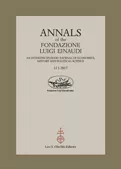Like Marcel Mauss’s Essai sur le don, Marshall Sahlins’s Stone Age Economics is perhaps “his own gift to the ages”. In the intellectual climate of the 1960s, between Polanyi’s lectures at Columbia University and Lévi-Strauss’s Laboratoire d’Anthropologie Sociale in Paris, Sahlins built a radical socio-economic theory, an anthropological economics, and an original idea of the human condition. This idea is based on empirical ethnographic materials, but also implicitly on the recovery of the ancient mythology and the poetical idea of the Golden Age, or the “state of nature” so prominent in the eighteenth century. At the center there is a concept of the human condition that Sahlins finds among pre-Neolithic hunters and gatherers, and which contrasts with the idea of the human condition constructed by Western Civilization, “on a perverse and mistaken idea of human nature”. It was a challenge to the notion of “scarce resources”. But Sahlins’s depiction of the Stone Age as the Golden Age of limited work and material plenty, idealizing the early condition of man, seems to echo the biblical story. At the bottom there is “the fundamental problem of human evil”, and original sin or the Genesis narrative. Fifty years after the publication of Stone Age Economics we can re-read that collection of essays on primitive societies, and especially “The Original Affluent Society”, and “The Spirit of the Gift” (the political aspects of the Gift) in a contrasting perspective of deep history of contemporary society, as a challenge to our social organization of production and consumption. But the lesson from archaeology (and history) is that it is very difficult for mankind to turn back time.



